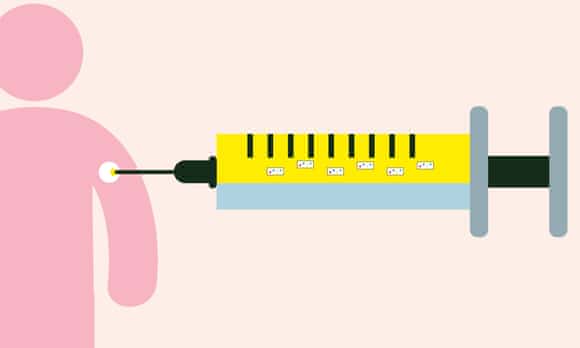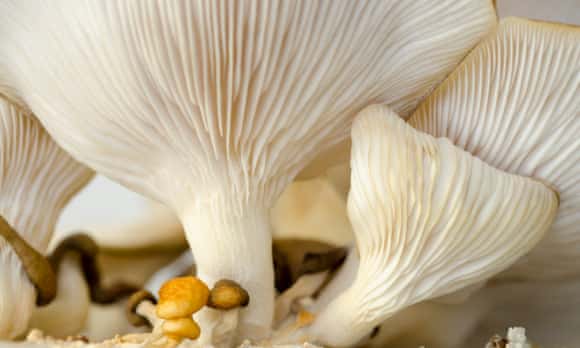 | Lab notes: talkin' 'bout a resolution (sounds like some science) |  |  2018 is no longer a blank sheet – let's cover it with science (well, in January anyway - February is for wine and chocolate too). Photograph: Sujata Jana / EyeEm/Getty Images/EyeEm
| Tash Reith-Banks
| This week's biggest stories We're far enough into January for most resolutions to have been tested somewhat. I'm one of the many hoping that doggedly sticking to Dry January will atone for December's sins, and if that rings a bell with you, then here's what the experts have to say about the efficacy of temporary abstinence. For those of you freshly committing to pursuits such as yoga, you might be interested in a new vascular study weighing up the claims made for hot yoga. However, all these healthy January ambitions may come to naught if your office, like mine, is heading for Aztec levels of pestilence (oh, all right, it's not that bad – although it may get worse if people start letting go with their sneezes instead of stifling them after reading this cautionary tale of throat rupture). Still, if you are having to take a few duvet days it will give you more time to read up on the fascinating discovery of complex engineering and metal-work beneath an ancient Greek "pyramid" or maybe to indulge in a little creative thinking. If your nose is all bunged up the idea of smelling again – let alone being able to describe scent – may feel far off, but you might still be intrigued by this study which concludes that how we source our food might affect how we describe scent. And on a serious note, let's hope this year brings more breakthroughs like this: researchers have made a major advance in developing a blood test that could use DNA and biomarkers to detect and identify cancers, including five types for which there is currently no screening test. That's what I'm talking about, 2018: more of this, thanks. More news from Guardian Science | Sign up to Lab notes ___ This week's talking point |  |  Gene editing Gene editing: what does it really means to rewrite the code of life? Photograph: Guardian Design Team
| We now have a precise way to correct, replace or even delete faulty DNA. Science editor Ian Sample explains the science behind fast-emerging gene editing technolog of gene editing, the risks – and what the future may hold. __ Straight from the lab – top picks from our experts on the blog network |  |  Enormous fungi! Oh, ok, they're just close. But imagine ... Photograph: Nancy Nehring/Getty Images/iStockphoto
| Strangest things: fossils reveal how fungus shaped life on Earth | Lost Worlds Revisited Prototaxites is an organism as odd as anything in Stranger Things. Bearing a superficial similarity to a fossil conifer trunk (and initially described and named as such in the 19th century), some specimens are up to a metre in diameter and more than eight metres long. It has long been debated, but most researchers have settled on a fungal affinity for Prototaxites. Until the appearance of the first forests around 375 Ma, the largest organism on land, towering over the landscape, was an enormous fungus. Don't knock the flu jab – it's a modern miracle | Occam's corner The problem with influenza is that, unlike some other bugs, it's a tricky shape-shifter. Because of this, the vaccine against it is not nearly as effective as others. For example, a complete course of MMR vaccine is 97% effective at preventing measles; two successive doses of the chicken pox vaccine are about 98% effective; and tetanus toxoid is about 100% effective. What's more, these impressive figures stay relatively constant year on year. In contrast, the success of the annual flu vaccine ebbs and flows dramatically, and the healthcare profession is pretty happy when it reaches a modest 40-60% efficacy. Some years it is much worse – as in 2004-05, when its effectiveness was only 10%. Why 'bird-brained' may not be such an insult after all | Lost Worlds Revisited The fossil record isn't particularly well-suited for the preservation of soft tissue such as brains – and behaviour doesn't fossilise at all. However, some inferences regarding behaviour can be made based on anatomy, something the fossil record is rife with. When we look at the anatomical evidence of bird behaviour in the fossil record (Naish, 2014), it becomes clear that certain types of behaviour we see in modern birds – such as colonial nesting, parental care and plumage display – evolved a long time ago, and are likely dinosaurian in origin. Visit the Science blog network ___
Alex Bellos's Monday puzzle |  |  A continental treat for all you puzzlers! Photograph: Etienne Laurent/EPA
| This week Alex had some excitement for lovers of Sudoku: a French version of the popular puzzle, called Garam. So did you solve it, or was is trop difficile? Visit Alex Bellos's Adventures in Numberland blog for more marvellous maths ___
Science Weekly podcast |  |  AI is providing insights into particle physics, so what else can scientists learn from artificial intelligence? Photograph: Merlin / Alamy/Alamy
| In the latest episode of our new mini-series Questioning AI, Ian Sample explores how AI is providing insights into cancer diagnosis, intelligence, and physics ___ Eye on science – this week's top video |  | This is really stunning: not only is the cave itself breathtaking, but archaeologists have found relics from the ancient Mayans. Archaeo-squee! | | Guardian News & Media Limited - a member of Guardian Media Group PLC. Registered Office: Kings Place, 90 York Way, London, N1 9GU. Registered in England No. 908396 |
| | | |
No comments:
Post a Comment